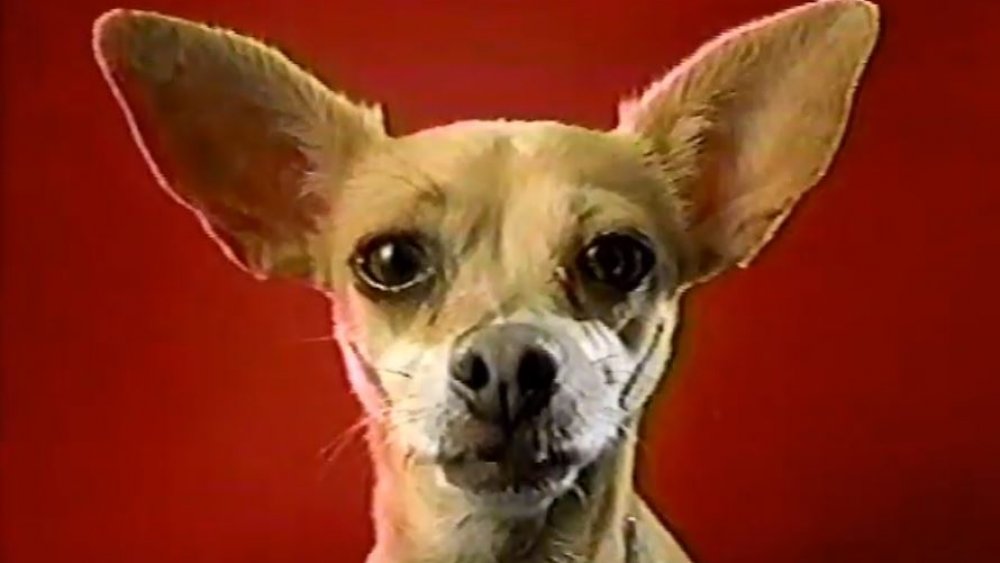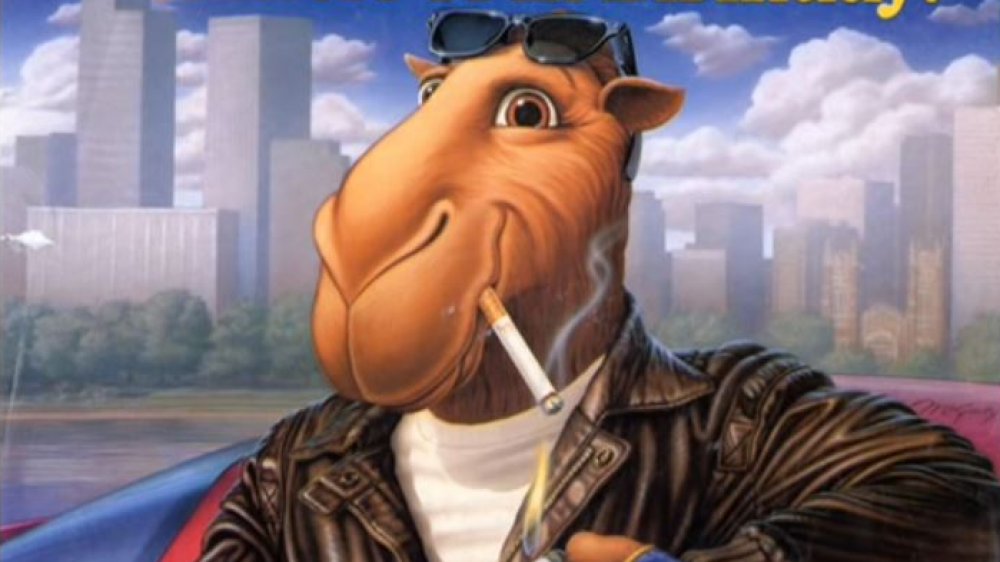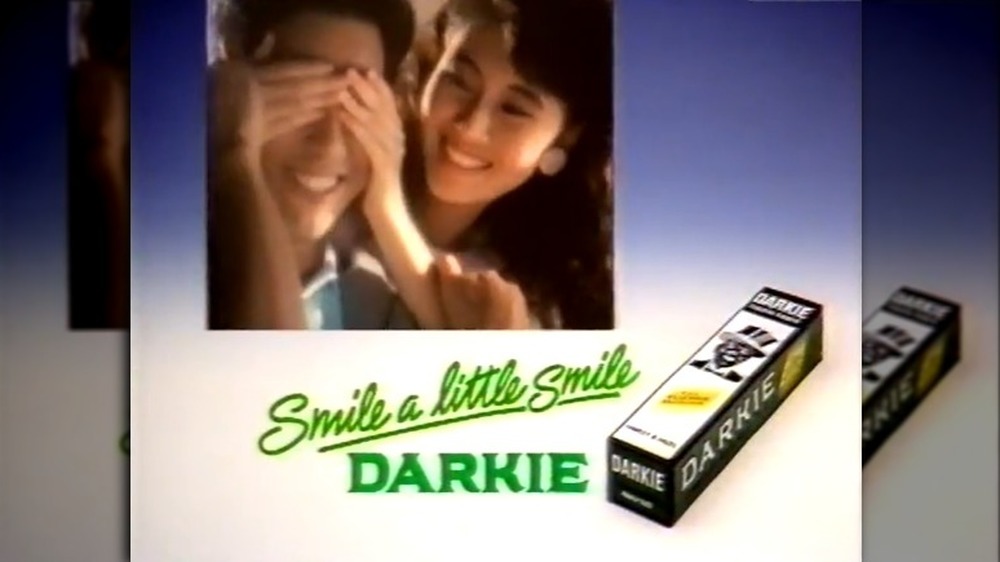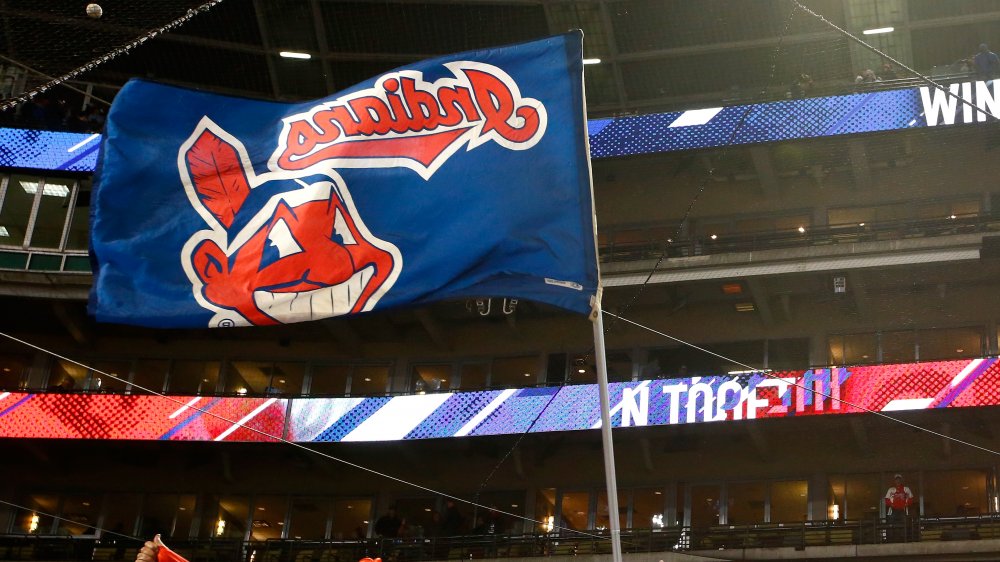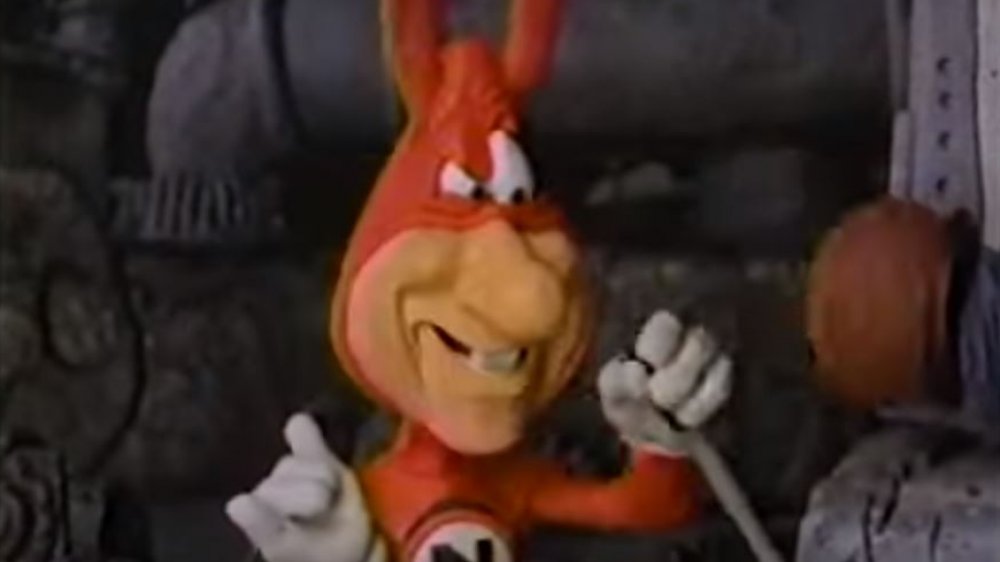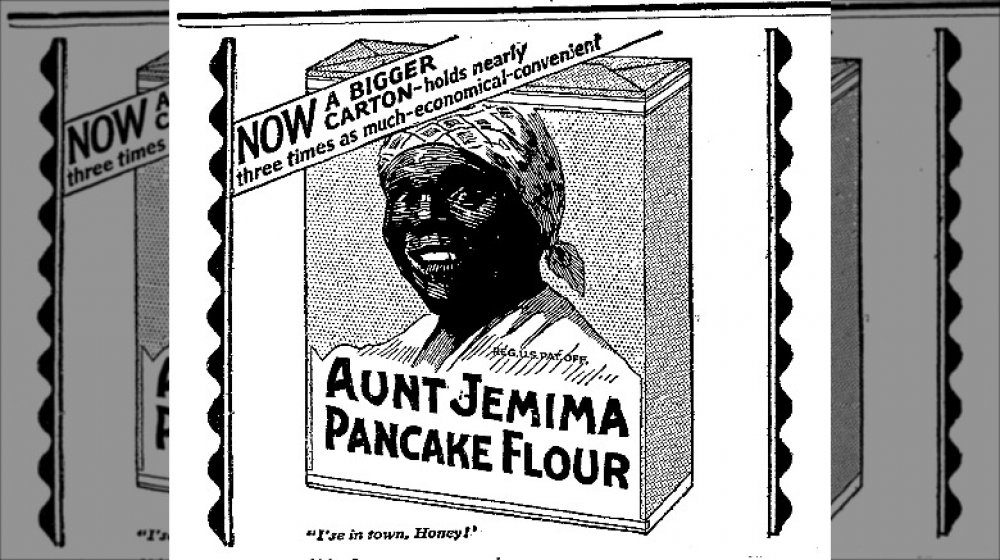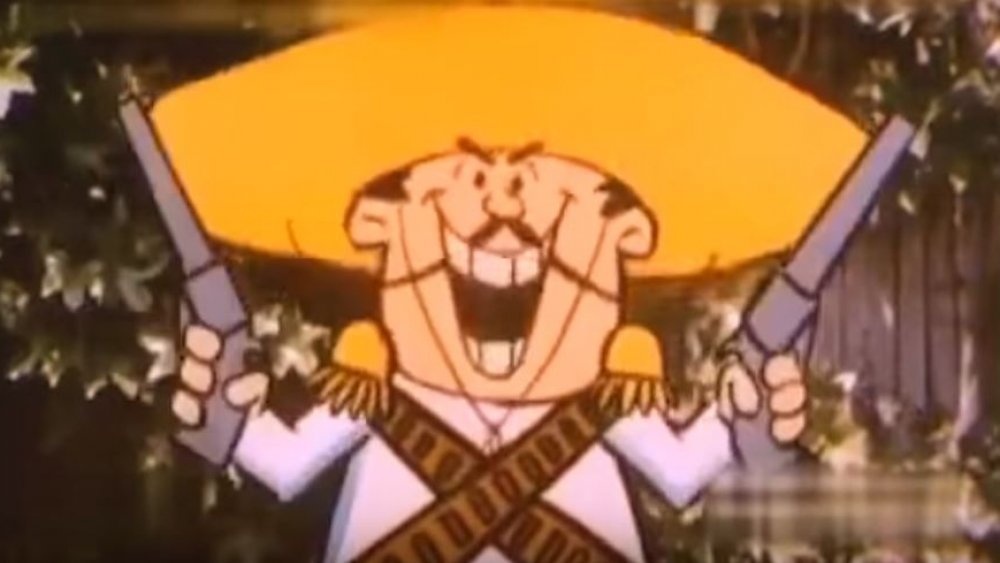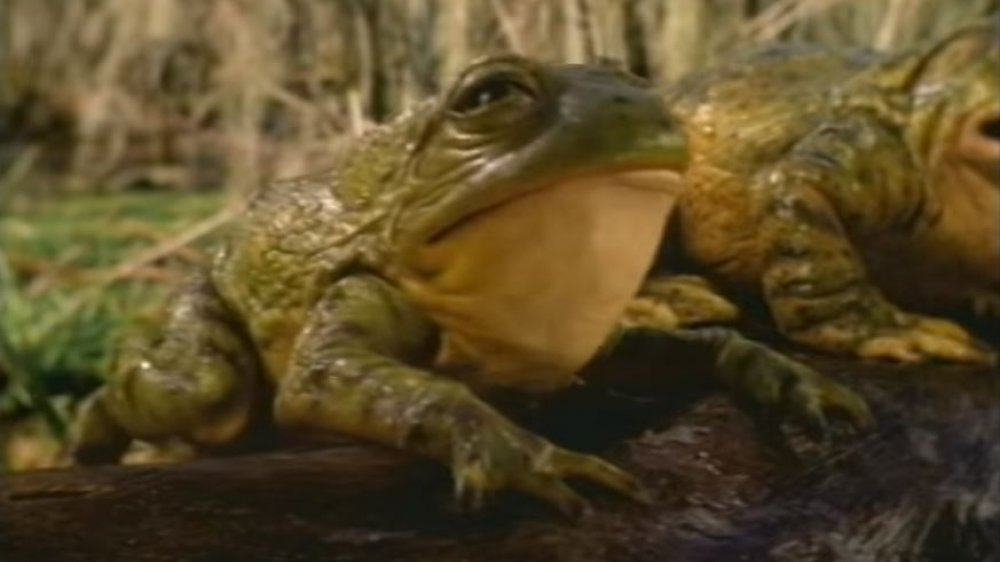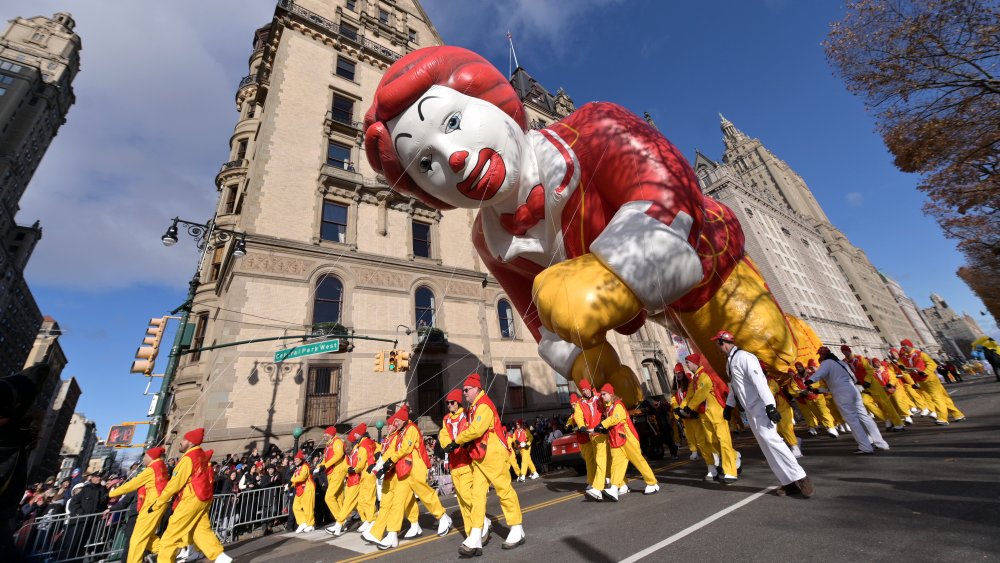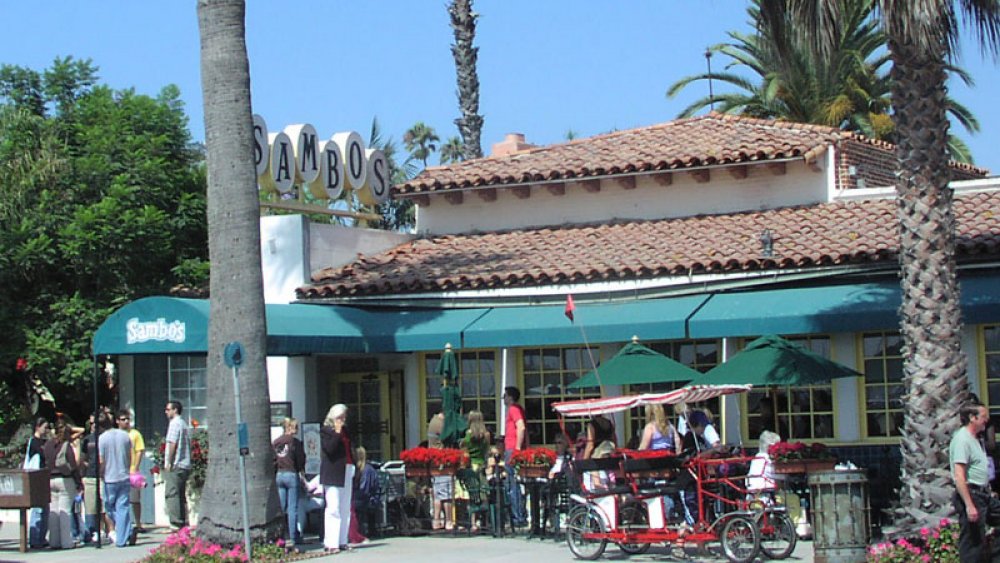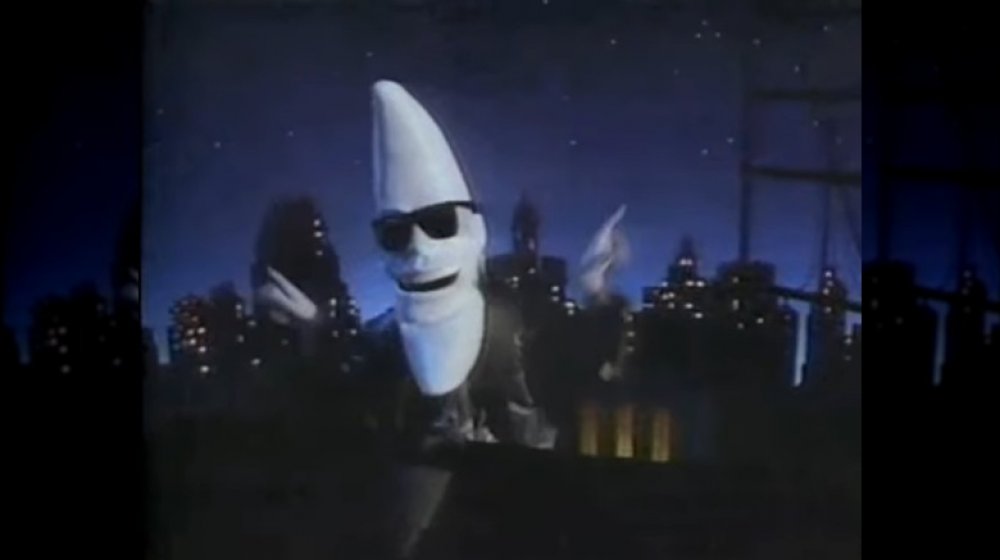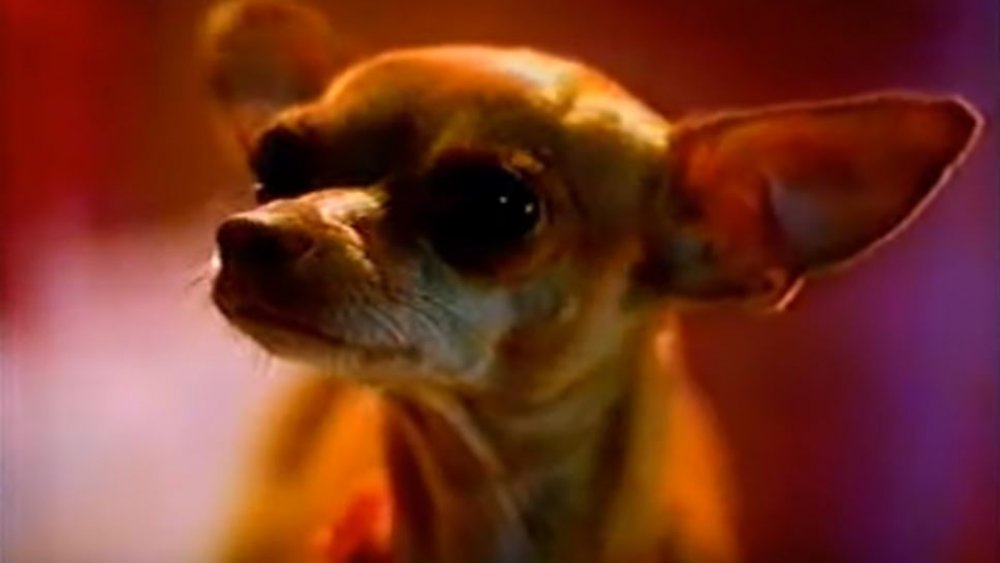The Most Controversial Corporate Mascots In History
How do you sell a product? If your first notion is to create a cute cartoon mascot, well, you wouldn't be the first one. Throughout the past few centuries, many of the biggest companies on the planet have marketed their products through the use of memorable characters, like Tony the Tiger and Mr. Peanut, who would look right at home in a Disney movie.
Sometimes, though, these mascots can land a company in boiling hot water, particularly if the powers-that-be haven't done their homework on avoiding cultural appropriation, racist tropes, or the seemingly obvious pitfalls of marketing adult products to kids. Even when mascots do succeed, though, their reputation are sometimes be ruined by cultural shifts or even violent incidents, either of which can render a formerly innocuous character into something altogether darker. Either way, you'll probably remember many of these controversial mascots, even if the corporations themselves might prefer that you didn't.
Joe Camel sure seemed like he was selling cigs to kids
Anybody past a certain age remembers Joe Camel. Emblazoned on every Camel cigarettes advertisement of the late '80s and '90s, Joe was an anthropomorphic camel, dressed up in an outfit Arthur Fonzarelli would admire, who struck crazy-cool poses and did crazy-cool things with a crazy-cool cigarette hanging out of his mouth at all times. Joe Camel was so famous that by 1994, according to the University of Alabama, a giant depiction of his face was lighting up Times Square.
There's just one problem. Doesn't Joe Camel seem an awful lot like the sort of character that, you know, kids would like? After all, he's basically a dromedary Johnny Bravo.
It goes without saying that probably the only entity on Earth that enjoys the notion of children lighting up butts has always been (what else?) the tobacco industry. So, it's no wonder that in 1997, The New York Times reported that the Federal Trade Commission was charging the R.J. Reynolds Tobacco Company (which owns Camel) with marketing to minors. While R.J. Reynolds hemmed and hawed about the whole shebang, it was by then an established fact that any tobacco company's long-term sales depended on teenagers picking up a smoking habit, which added fire to the FTC's campaign. In the end, R.J. Reynolds company didn't have a leg to stand on, and by the end of that summer, Joe Camel bit the dust.
The most racist toothpaste in the world
Problematic and offensive mascots are not strictly a U.S. problem. They show up everywhere, in all kinds of ways. For example, there exists a popular toothpaste from Hong Kong that was, for decades, called Darkie — or "Black People Toothpaste," in Chinese — and as its mascot, it featured a minstrel show character in blackface, sporting a giant white grin. According to Newsweek, the Darkie mascot was inspired by Al Jolson, a blackface performer. Though the people behind the scenes certainly must have known how racist this whole thing was, they feigned ignorance, collected their cash, and kept the brand going. Darkie toothpaste got so big, in fact, that imitation "black people toothpaste" knockoffs appeared on store shelves.
Well, in the '80s, Colgate bought Darkie for $50 million. And lest you think this powerful toothpaste company immediately put its foot down against the racist branding and mascot .... well, think again. According to The New York Times, it took three years of protests, arguments, and pressure from shareholders for Colgate to make amends, at which point they re-branded the toothpaste as "Darlie" and changed the mascot to a racially ambiguous man in a top hat.
The long, troubling history of sports team mascots and cultural appropriation
Bigotry is still a huge part of the world today, as seen by mass incarceration, today's hate crimes, and the fact that Coronavirus has sparked a wave of anti-Asian racism. These days, though, companies at least try to avoid branding themselves as racist through the use of explicit stereotypes, particularly when it comes to mascots ... unless, of course, you're talking about the U.S. sports industry, which just won't stop exploiting Native American culture. Because, face it, while you'd never see a baseball team in the 21st century that named itself after a racial slur for black or Jewish people, the MLB still has the Cleveland Indians. And from 1948 to 2019, the Indians advertised themselves using a red-skinned caricature of an indigenous man, dubbed Chief Wahoo. Chief Wahoo had drawn decades of protests from Native American groups, according to The New York Times, but these arguments went ignored until pressure from the commissioner of baseball, Rob Manfred, finally sunk in.
The team itself, though, continues using this problematic name. So does the NFL's Washington Redskins, as explained by The Washington Post, who have their own offensive logo, despite years of campaigns pointing out how this stereotyping does real harm to real people of indigenous descent. The NFL has shown little sensitivity to the matter, if not outright hostility, as exhibited by their 2017 decision to have the Washington Redskins host a Thanksgiving game, according to The Nation.
Domino's lost their corporate mascot to real-life violence
These days, Domino's Pizza doesn't really bother with mascots. Back in the '80s, however, they had the Noid. This intentionally obnoxious character — depicted in claymation as a creepy, sniveling little man in a skintight rabbit costume — was a villainous force who ruined pizza deliveries. According to Domino's commercials, they were the only pizza company who produced Noid-proof pizzas, so if you ordered from them, you could "avoid the Noid." Groan. Despite the fact that the Noid intensely irritated every adult in the world, kids loved these ads, and according to Priceonomics, Domino's milked the character through Noid video games, Noid toys, Noid everything. It was a parent's worst nightmare.
The Noid himself, while annoying, wasn't offensive. That changed, rather horrifically, in 1989, when a troubled, schizophrenic man named Kenneth Lamar Noid (note the surname) came to believe that Domino's whole Noid campaign had been created specifically to torment him, and that the villainous Noid was a negative representation of him. Driven into a rage, Kenneth Noid burst into an Atlanta Domino's restaurant with a gun, demanded $100,000, and took two employees hostage. While the hostages escaped unscathed, Kenneth Noid himself was committed to a mental institution, and the pizza company's Noid character was forever ruined.
Since then, the Noid had been avoided at all costs.
Aunt Jemima is seriously problematic
Many problematic mascots have, in the past century, gone the way of the dodo. Others persist to this day. Aunt Jemima, the pancake and syrup brand owned by Quaker Oats, belongs to the latter category.
As explained by The Atlantic, the symbolism behind the Aunt Jemima brand and mascot is directly connected to racist sentiments and linked to a problematic sense of nostalgia for segregation, Jim Crow, and so on, usually among those who didn't have to suffer the hardships of these times. Aunt Jemima's name first arose from a minstrel song, and as Riché Richardson explained for The New York Times, Aunt Jemima herself is still portrayed as a "mammy," which is a plantation-era stereotype of a de-sexualized, overweight, maternal black woman, who cheerfully cares for the plantation owner's children instead of rebelling against the bonds of slavery. Despite these problems, and the many arguments that persist, Quaker continues to use Aunt Jemima in the 21st century, though the company has tried to alter the imagery associated with her.
The controversial Frito Bandito didn't last long
Racist stereotypes regarding Hispanic and Latino Americans, those of Mexican descent in particular, continue existing to this day, and such negative portrayals have been around for a long time. Back in the early '70s, Frito-Lay pushed out a new advertising campaign featuring a pencil-mustached character dubbed the Frito Bandito, voiced by Mel Blanc in an exaggerated Mexican accent, who went around with his six-shooter pistols and tried to steal bags of Fritos from white Americans. These commercials are ... uncomfortable, to the say the least. It's only made worse when you find out that, according to NPR, the "creator" of Fritos, Charles Elmer Doolin, actually bought the concept, name, and patent for Fritos from a Mexican man, so it could be argued that Fritos ripped off a Mexican creation, then tried to frame Mexicans as thieves. Not good.
The Mexican American Anti Defamation Committee understandably had a problem with this, and in 1971, The New York Times reported that they were filing a class-action suit against the Frito Bandito mascot for the sum of $610 million. The Frito Bandito soon got ripped off the air, whereupon he was replaced by campaigns like the whole "muncha buncha Fritos" thing.
Budweiser loses twice
Budweiser likes to proclaim itself the "king of beers," but slipping sales in the last few years say otherwise. Aside from the eternal debate regarding Budweiser's watery taste, everyone can agree that they've put out some highly memorable ad campaigns over the years. Too memorable, one could say, given that their mascots keep becoming popular with underage drinkers.
The first notable occasion wherein this happened was during the 1987 Super Bowl, according to Business Insider, with the introduction of their new doggie mascot Spuds MacKenzie, the partying Bull Terrier. Spuds soon appeared everywhere, spiking Bud Light's sales up 20 percent. Soon enough, Spuds got the attention of Senator Strom Thurmond, who raised arguments that promotional materials like a Spuds MacKenzie doll seemed an awful lot like Budweiser was marketing to kids. Mothers Against Drunk Driving followed suit. So did schools, which started banning Spuds merchandise ... though really, who sends their first grader to school in a beer T-shirt? Anyway, by 1989, Spuds retired, though his ethereal ghost would later appear in a 2019 commercial.
This same cycle repeated in the '90s, SF Gate says, with the Budweiser frogs. You remember those guys, the ones that ribbited "Bud" and "Weis" and "Er," yeah? So does every other '90s kid, and a 1996 study found that children recognized the Budweiser frogs just as much as Bugs Bunny and Smokey the Bear. Budweiser disputed this, but as Business Insider points out, they still phased out the frogs.
Ronald McDonald doesn't look so happy anymore
Wait, when did Ronald McDonald become controversial? It's a recent phenomenon, for sure, but it makes more sense than you think. Besides, haven't you noticed that this clowny fool isn't appearing in McDonald's commercials anymore?
Ronald has hit the bricks for a number of reasons, as Comic Book Resources explains, with the foremost one being that as people became increasingly aware of just how unhealthy McDonald's food really is, and — amidst skyrocketing childhood obesity rates in the United States — they also became increasingly uncomfortable with the idea of the fast food giant marketing itself to kids. Which, frankly, they totally were doing, whether through playgrounds, Ronald, or Ronald's fellow mascots like the Hamburglar. By the 2010s, the pressure exerted by groups like Corporate Accountability International convinced McDonald's to put their old mascot in the backseat in favor of new, more adult-targeted campaigns like "I'm lovin' it."
However, what might've really killed the clown, in the end, was the cultural shift that happened wherein characters like the Joker and Pennywise taught kids to think of clowns as terrifying, demonic creatures instead of fun pranksters. Widespread coulrophobia only worsened in 2016, when a rash of creepy clowns were sighted all over the U.S., often at night, and sometimes carrying weapons. After the clown panic went viral, McDonald's retired their clown a bit more officially, though his name remains tied to Ronald McDonald House Charities.
The chain restaurant that played up racist stereotypes
If you're familiar with the racial slur "Sambo," sometimes used to refer to black men and/or men of mixed ancestry, you might be shocked (or not) to learn that in the recent past, people in the United States flocked to a restaurant named Sambo's, which used a mascot — a cartoon image of a young boy, named Little Black Sambo, a la the infamous Helen Bannerman book — that played up the name's associations. According to The Daily Beast, Sambo's could be found in 47 states, at 1,117 locations, and this unnamed mascot was at every one of them.
Weirdly enough, the concept behind the name wasn't originally connected to the racist epithet. First opened by Sam Battistone Sr. and Newell Bohnett in Santa Barbara, California, in 1947 as a place for cheap pancakes and cheaper coffee, Sambo's was a portmanteau of the founders' names: "Sam" from Battistone and "Bo" from Bohnett. Once established, though, Sambo's swiftly adopted the offensive connotations, and the restaurant's walls were decorated with painted wall murals of their mascot going on adventures. During the Civil Rights Movement, marginalized communities began to speak up against the restaurant's imagery, and by the '70s, Sambo's expansion attempts wound up in lawsuits from states like Connecticut and Michigan, garnering the involvement of the Human Rights Commission and the NAACP. Eventually, the controversy grew so hot that Sambo's started downplaying their past, trying out different names, and finally, filed for bankruptcy in 1982.
From dumb corporate mascot to hate symbol
Not all mascots are born problematic. Some of them start out okay, then get transformed by the internet, to the point of being unrecognizable from their past selves. Take Mac Tonight, the weird, moon-headed musician that McDonald's briefly tried on as a mascot in the '80s, according to Mental Floss. With his slick tuxedo and talented piano skills, Mac Tonight entertained the world from atop a cloud, in a clear effort at marketing to nostalgic baby boomers, i.e., "Don't be afraid of going to McDonald's after dark, folks, it's a swell ol' place." Played by Doug Jones of The Shape of Water fame, the lunar crooner was a huge hit for a few years, but he eventually got tied up in a lawsuit from Bobby Darin's estate, who claimed McDonald's had stolen his style and demanded $10 million in damages. The charges were dropped, but by then, Mac Tonight was deader than moon dust.
Unfortunately, he came back in 21st century, but like Pepe the Frog, he was swiftly warped beyond recognition by the alt-right. Since the 2010s, Mac Tonight has been retooled into Moon Man, a white supremacist rapper who's appeared in numerous internet videos, according to Salon, often calling out for the abuse and/or murder of Black Americans, Jewish people, women, and other marginalized groups. As a result, this former McDonald's mascot has now been classified as a hate symbol by the Anti-Defamation League.
The Taco Bell chihuahua got sued into the doghouse
You don't need to have spent any time in Mexico to figure out that Taco Bell is about as far removed from actual Mexican cuisine as Pizza Hut is from Italian. Despite this, the company has regularly appropriated Mexican imagery or used weird Spanglish slogans to market itself. One advertising campaign that particularly set people off, though, was also Taco Bell's most successful — the so-called Taco Bell Chihuahua, a Mexican-accented pup who would often proclaim, "Yo quiero Taco Bell." The League of United Latin American Citizens took issue with the fast food canine, according to the Los Angeles Times, by pointing out that the imagery exacerbated existing racial stereotypes. The argument, in the words of LULAC president Gabriel Cazares, was that, "Mexican Americans are treated like dogs, they have to work like dogs, and now they're being portrayed as dogs."
In the end, oddly, it wasn't racial controversy that cost Taco Bell their dog but a breach of contract. In 2009, The Seattle Times reported that a decade-long rights dispute between the fast food company and the mascot's creators, Thomas Rinks and Joseph Shields, had ended with Taco Bell being ordered to award $42 million in damages to the two men.
The dog herself, Gidget, died that same year, at the age of 15. According to CNN, she also appeared in films like Beverly Hills Chihuahua and Legally Blonde.
